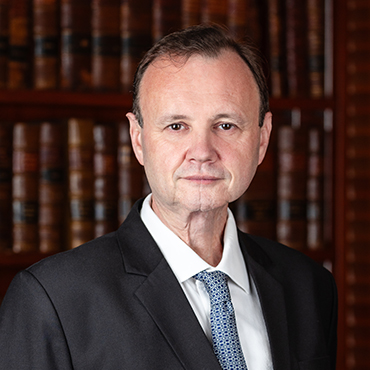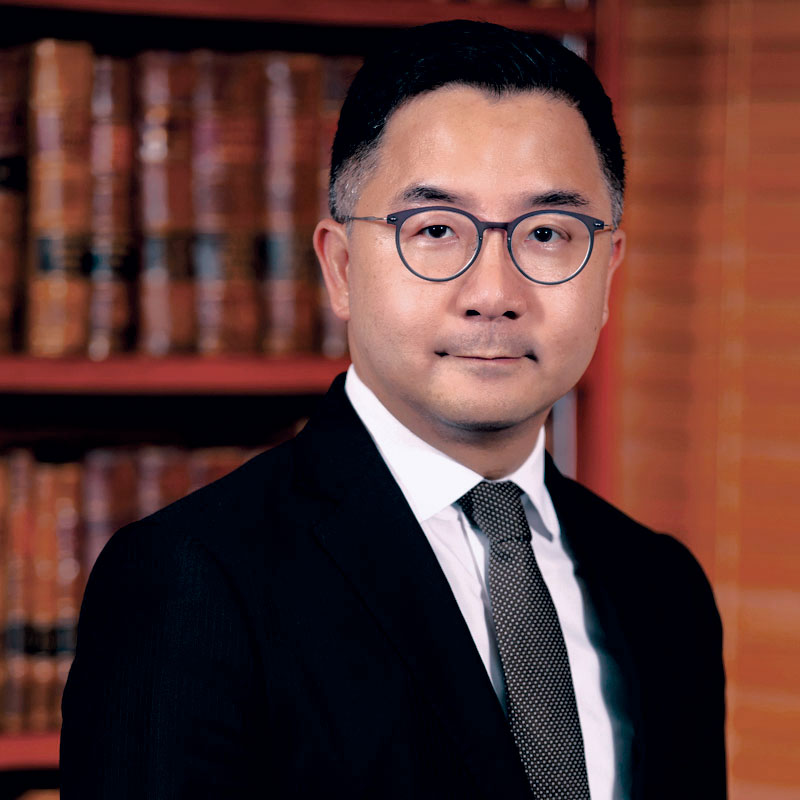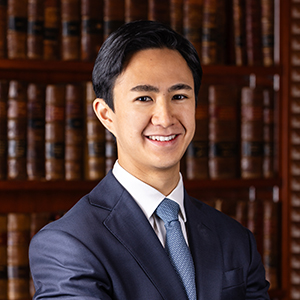LCFM v LSF [2025] 1 HKC 29, [2024] HKCA 852 (Richard Todd KC, Eugene Yim, Sebastian Leung)
Richard Todd KC, Peter Barnes and Sebastian Leung represented the 2nd applicant, and Eugene Yim represented the 1st applicant in LCFM v LSF [2025] 1 HKC 29, [2024] HKCA 852.
The 2nd applicant (H) applied in 2023 to renew his application for leave to appeal against the order of a judge of the District Court (Judge), dismissing certain paragraphs in a summons which the 2nd applicant filed in 2021 (the 2021 Amended Summons). The 2021 Amended Summons sought an order inter alia that H be released from the specified Undertaking (Undertaking H) to the Court and 1st applicant (W) in the Recital part of the Consent Order made by the Judge, granting free access to a property, and facilities therein, to the 1st applicant. The 2021 Amended Summons was heard before the Judge, who after trial refused to release the 2nd applicant from the specified Undertaking under the Consent Order. The 2nd applicant’s application for leave to appeal was dismissed by the Judge.
Held, unanimously, dismissing the application:
Per Ng J
(1) Leave to appeal shall not be granted under s 63A of the District Court Ordinance (Cap 336) unless the Court of Appeal was satisfied that the appeal had a reasonable prospect of success or there was some other reason in the interests of justice that the appeal should be heard (para 13).
(2) It was well-established that the Court of Appeal may only interfere with the exercise of the judge’s discretion in accordance with the principles in Hadmor Productions Ltd v Hamilton. The grounds on which an appellate court was entitled to interfere with an exercise of discretion were limited and it could not interfere merely because it would have reached a different conclusion had it been hearing the application at first instance. It could only interfere in three cases: (i) where the judge had misdirected himself with regard to the principles in accordance with which his discretion had to be exercised; (ii) where the judge, in exercising his discretion, had taken into account matters which he ought not to have done or failed to take into account matters which he ought to have done; or (iii) where his decision was plainly wrong: Bright Shipping Ltd v Changhong Group (HK) Ltd (No 2) [2019] 5 HKLRD 30 ; [2019] HKCA 1062 ; [2019] HKCU 3588; Hadmor Productions Ltd v Hamilton [1983] 1 AC 191 and KNM v HTF [2011] HKCU 1748 (HCMP 288/2011, Hartmann and Fok JJA, 7 September 2011, unreported) considered (paras 14, 15).
Ground 1
(3) The 2021 Amended Summons which led to the Decision was for a release of Undertaking H, not to vary it. Nor was there a replacement Undertaking on the face of the 2021 Amended Summons. Thus the present application was not about raising a point of law not previously raised before the Judge – there was simply no application before the Judge to vary Undertaking H or to replace it with another one. H just wanted to completely get out of an undertaking he had voluntarily given to the Court and W in the circumstances set out above. Having considered the Decision as a whole, it did not appear to the Court of Appeal that the Judge’s approach to the 2021 Amended Summons in following the guidelines in L v C was any different from that advocated in D v D or AEM v VFM. The Judge understood and did what he considered to be just, by reference to all of the relevant circumstances of the case, including the basis upon which the parties originally entered into the Consent Order and whether there was any material change of circumstances. In respect of the latter, the Judge had already made a finding of fact that there was no material change of circumstances since the giving of Undertaking H. AEM v VFM [2008] 1 HKC 324 ; [2008] 3 HKLRD 36 ; [2008] HKFLR 106; D v D [2021] HKFC 48 ; [2021] HKCU 1985; and L v C [2015] HKCU 3501 (FCMC 5952/2012, Deputy District Judge Grace Chan, 3 July 2015, unreported) considered (paras 20-22, 28, 29).
Ground 2
(4) The clean break achieved by the Consent Order was only concerned with the financial settlement between H and W and the maintenance for W and the Children. In so far as H complained that the Judge had failed to have regard to the understanding of the parties as to the meaning of the provision granting ‘free access’ or the Undertaking’s original utility and intention are concerned, it was difficult to see how the Judge could have ascertained the subjective understanding of the parties and H’s subjective intention in giving Undertaking H. Those factors allegedly not considered by the Judge could at most show that the practical effect of the Undertaking H turned out to be not what H had assumed or expected. This did not render it just to release H from it, given that he voluntarily gave it to the Court and W and during cross-examination gave an answer which led the Judge to conclude it was his informed consent to sign the 3rd Consent Summons which led to the Consent Order with Undertaking H. Further, H did not suggest there was any factor(s) vitiating his consent to give Undertaking H. As for the updating part, it was no more than saying that H had had a change of heart now and wants to wriggle out of the Undertaking. There was no finding of fact that W had changed her mind or that constituted ‘material change of circumstances’ (paras 35, 36, 39- 41).
Ground 3
(5) The facts of the present case did not raise any novel point of law which required clarification. Any attempt to do so would be an academic exercise without a proper factual context. D v D (above) and L v C (above) considered (paras 44, 45).
[The above is excerpted from the headnote to the report in HKC.]




